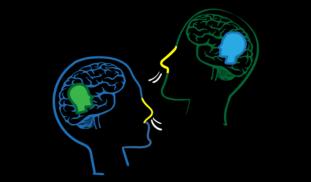94
0
0
Like?
Please wait...
About This Project
Our sense of smell is tightly connected with our memory: everyone has experienced how odors can evoke the recall of strong emotions. As humans, we live in a world packed with social inputs, among which human body odors are one powerful social communication tool that is often masked by fragranced hygiene products. This study aims to investigate to what extent human body odors can affect human brain and memory.

Browse Other Projects on Experiment
Related Projects
Brain dynamics in braille reading: Letters to language
Blind and low-vision readers read and write text using braille, a tactile system of raised dots. In this...
Mapping midlife minds: A study of women’s cognitive and mental health
Many women experience brain fog, memory lapses, anxiety, and mood swings during peri/menopause – yet we...
Developing a new evidence-based treatment for moderate to severe dementia
The World Health Organization calls for an increase in psychosocial interventions for dementia. While the...

